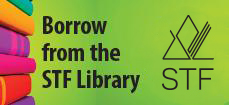Demonstrate understanding of probability by:
- determining sample space
- differentiating between experimental and theoretical probability
- determining the theoretical probability
- determining the experimental probability
- comparing experimental and theoretical probabilities.
[C, PS, R, T]
| (a) |
Observe situations relevant to self, family, or community where probabilities are stated and/or used to make decisions. |
| (b) |
List the sample space (possible outcomes) for an event (such as the tossing of a coin, rolling of a die with 10 sides, spinning a spinner with five sections, random selection of a classmate for a special activity, or guessing a hidden quantity) and explain the reasoning. |
| (c) |
Explain what a probability of 0 for a specific outcome means by providing an example. |
| (d) |
Explain what a probability of 1 for a specific outcome means by providing an example. |
| (e) |
Explore and describe examples of the use and importance of probability in traditional and modern games of First Nations and Métis peoples. |
| (f) |
Predict the likelihood of a specific outcome occurring in a probability experiment by determining the theoretical probability for the outcome and explain the reasoning. |
| (g) |
Compare the results of a probability experiment to the expected theoretical probabilities. |
| (h) |
Explain how theoretical and experimental probabilities are related. |
| (i) |
Critique the statement: "You can determine the sample space for an event by carrying out an experiment." |







- Open Questions for Rich Math Lessons. Grades 4-6, Number Strand
- Open Questions for Rich Math Lessons. Grades 4-6, Patterns and Relations, Statistics and Probability
- Open Questions for Rich Math Lessons. Grades 4-6, Shape and Space





